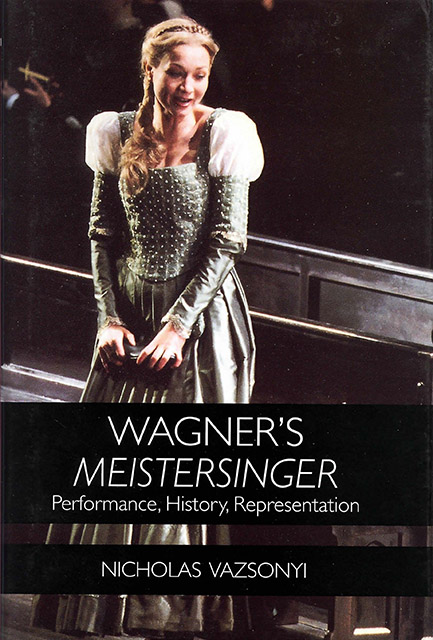2 - “We Must Finally Stop Apologizing for Die Meistersinger!”: A Conversation with Harry Kupfer
Published online by Cambridge University Press: 25 March 2023
Summary
Mr. Kupfer, you have staged Wagner's works from Der fliegende Holländer to Parsifal. Where do you think Die Meistersinger fits into Wagner's oeuvre?
The great political and philosophical dimension, which the Ring opens up, is portrayed on a very individual level in Tristan. The destruction of people by people themselves takes shape in Tristan through lies, untruths, and social convention. By contrast, in the miraculous work of Die Meistersinger one finds these problems overcome. This is especially the case in the wonderful figure of Hans Sachs who is truly a democratic personality. After an intense internal struggle he comes to the realization that in order for people to live together successfully, reason and the renunciation which is associated with it are a vital necessity. In this sense, Die Meistersinger is the most utopian and optimistic of Wagner's works, where, in contrast to the pessimistic endings of all his other works, the possibility is shown of how people actually could live democratically with one another if they take responsibility by renouncing the idea that self-realization must be achieved at all costs.
It is common knowledge that in the past Die Meistersinger was often and repeatedly used and misused not only for purposes of specific representation, but also that performances especially before 1945 were laden with a markedly nationalistic accent. What is your position concerning the nationalistic element, and Sachs's formulation of “Was deutsch und echt” (what is German and true) in the final speech?
The possibility for misuse and falsification is contained throughout Wagner’s oeuvre. The contradictions of the nineteenth century, all of which Wagner synthesizes and takes to the extreme, also render his work open for misuse. It is well known that the final speech, complete with its national overemphasis, is essentially Cosima's fault. Originally, Wagner did not want to write it quite like that. Immediately after the Nazi period, these words caused a shiver to run up our spine. But today we can also perceive them differently. What has now become of “German and true” and of German culture in general, given the shadow of Americanization, makes the work explosive in an entirely new way, without us having to read it nationalistically. As we struggle today for a united Europe, it is constantly stressed that the particularity of each nation should not be lost.
- Type
- Chapter
- Information
- Wagner's MeistersingerPerformance, History, Representation, pp. 39 - 50Publisher: Boydell & BrewerPrint publication year: 2003



